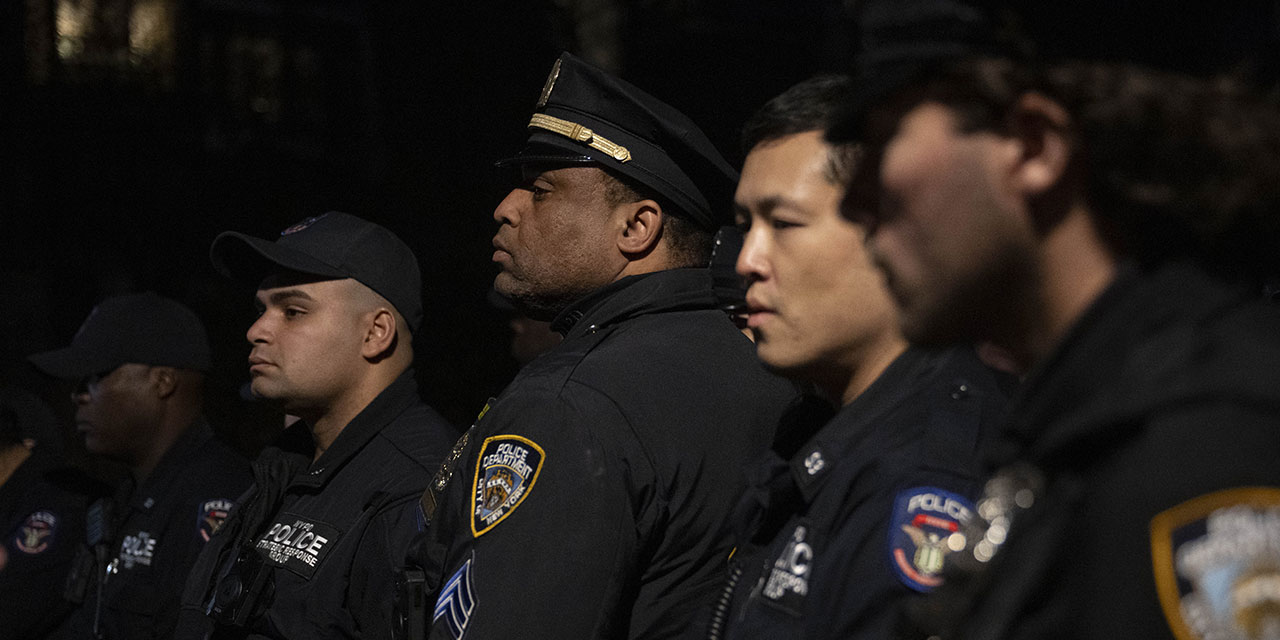
Any mayor of New York faces constant pressure to fix problems over which he has limited control. Mental illness is a case in point. The average New Yorker demands action on involuntary hospitalization, for example, but does not grasp that only state and federal policymakers can scale up the supply of psychiatric hospital beds.
What does fall squarely under mayoral authority is the New York Police Department. The police serve as the mental health system’s gatekeepers, particularly on untreated serious mental illness. New York has about 8,300 seriously mentally ill homeless people. If they’re to get any treatment, police involvement will be required. Defining the scope and goals of that involvement takes mayoral leadership.
Finally, a reason to check your email.
Sign up for our free newsletter today.
Police have gotten mixed messages on mental health. The hot idea in the 2010s was de-escalation. The city instructed police, through specialized training similar to what hostage negotiators learn, and generalized messaging, to handle mental health–related calls with extreme patience. City leadership promoted de-escalation as a way to curb cops’ brusque tendencies, which worsened tensions on “Emotionally Disturbed Person” calls and sometimes resulted in tragedy. The city still endorses the practice, with the NYPD providing over 18,000 hours of “Crisis Intervention” training to officers last year.
But as city government cautions cops to act slowly to avoid adverse outcomes, it also directs them to speed up to avoid those outcomes. Since Eric Adams took office in January 2022, early intervention has been the defining principle of his mental health policy. The mayor prevailed on state lawmakers in the recent budget to clarify that police can take someone into custody for a civil-commitment evaluation if he’s failing to meet his basic living needs. Adams has emphasized that if cops wait until a person is violent or suicidal to start the involuntary hospitalization process, it’s already too late.
City government needs to clarify its expectations. When officers encounter someone with untreated psychosis, should they intervene or de-escalate? The right approach will depend on the situation—but telling officers to “take it case by case” is not leadership. To make recent state reforms effective, officers need a clear message: the public and city government want them to take a more preventative approach to mental illness-related disorder. They need to know that if they’re caught on camera escorting a nonviolent but acutely deteriorating schizophrenic woman to the hospital against her wishes, New York City will stand behind them.
A walking back of de-escalation rhetoric is therefore in order. That is up to the mayor, not the governor or Congress.
Progressives pushed de-escalation based on the notion that police are clueless about serious mental illness, which should be left to the professionals. It’s true that we shouldn’t want police intervention to come at the expense of involvement from the public mental health system. For too long, that system has focused inordinately on those with milder mental disorders, leaving the severely mentally ill in the care of cops, courts, and corrections. Still, the city needs police involvement if it’s to make headway in reducing the rate of untreated serious mental illness. (In fact, officers’ extensive involvement in the civil-commitment process is partly the result of progressives’ push to restrict involuntary commitment to “dangerous” situations. Assessing dangerousness is, obviously, cops’ expertise.)
Every leading candidate for mayor except Zohran Mamdani has committed to hiring more cops. Delivering on that pledge will help shift the department’s culture toward intervention. When instituting new modes and orders in a large workforce, re-training is less desirable than recruitment, then training. Back in the early 1990s, New York’s cop shortage was, in one sense, a boon, since backfilling it enabled the implementation of Broken Windows policing and other systemic reforms.
Whoever prevails in this fall’s mayoral election would be foolish not to take advantage of the favorable political winds on mental health. The issue is not like the budget or rent control, where the right thing to do is unpopular. Sound leadership on mental health means, mostly, following public opinion.
If the next mayor serves as a vector between the popular will and the public workforce, the city will make progress on mental health.
Photo by Mostafa Bassim/Anadolu via Getty Images
City Journal is a publication of the Manhattan Institute for Policy Research (MI), a leading free-market think tank. Are you interested in supporting the magazine? As a 501(c)(3) nonprofit, donations in support of MI and City Journal are fully tax-deductible as provided by law (EIN #13-2912529).
Source link

















